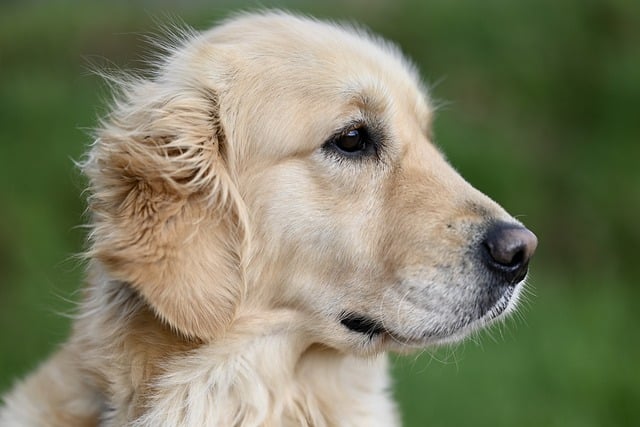
What is glaucoma in a dog?
You might notice your dog squinting more at mealtime or avoiding bright sunlight—these small changes could be early signs of a serious eye condition.
When we look at that cute, lively and active puppy, our hearts are filled with earnest expectations for its healthy growth. In the daily care of puppies, dietary choices are always of utmost importance, and every bite of food carries our deep concern for their health. And raw chicken, as a common food, has also entered the scope of our consideration for the diet of puppies, leading to a lingering question: can puppies eat raw chicken?
From the physiological characteristics of puppies, their digestive system is more fragile and sensitive compared to adult dogs. During the period after birth, puppies mainly rely on breast milk for nutrition. The nutrients in breast milk are not only rich and easy to digest and absorb, but also help puppies establish their own immune system. As puppies grow, they start weaning around 8 weeks and gradually transition to consuming solid foods. At this stage, the puppy's teeth begin to sprout, and its chewing and swallowing abilities gradually develop, but its digestive system still needs time to adapt to different types of food. The gut microbiota is not yet fully stable, and the secretion of digestive enzymes is not yet complete, which may cause difficulties in digestion for puppies when faced with certain foods. So, when considering whether to feed raw chicken to puppies, it is necessary to fully weigh the carrying capacity of their digestive system.
Raw chicken does have certain nutritional value for puppies. Chicken is rich in high-quality protein, and its amino acid composition matches the growth needs of puppies, providing important material basis for their muscle development and physical growth. Protein is a fundamental component of body cells and tissues, playing a crucial role in the bone development, hair health, and overall bodily functions of young dogs. In addition, raw chicken also contains a certain amount of fat, which can provide energy for puppies and meet their lively and active nature needs. Moreover, the fat in chicken contains some beneficial fatty acids for the health of puppies, such as Omega-3 fatty acids, which help with their brain development and vision improvement. At the same time, the moisture content in raw chicken is relatively high, which is also helpful for puppies to maintain body water balance and promote metabolism.
However, there are also many potential risks associated with raw chicken meat. Firstly, raw chicken may carry various bacteria, among which the most common are Salmonella and Escherichia coli. These bacteria can reproduce in a suitable environment, and once puppies consume raw chicken contaminated with bacteria, it is highly likely to cause intestinal infections. After being infected with Salmonella or Escherichia coli, puppies may experience symptoms such as vomiting, diarrhea, abdominal pain, and in severe cases, dehydration and electrolyte imbalances, which can be life-threatening. Secondly, there may be parasites such as Toxoplasma gondii and tapeworms in raw chicken meat. After a puppy is infected with parasites, the parasites will parasitize and reproduce in its body, grabbing the nutrients needed by the puppy's body and affecting its normal growth and development.

If you decide to feed your puppy raw chicken, be sure to take the correct approach. Firstly, it is important to ensure that the source of raw chicken is safe and reliable. Choose fresh, organic, and pollution-free chicken, preferably purchased from reputable supermarkets or farmers' markets. After purchase, the raw chicken should be stored properly and placed in the freezer to avoid cross contamination with other foods. Before feeding, slowly thaw the frozen raw chicken in the refrigerator compartment to minimize the chance of bacterial growth. After thawing, the raw chicken should be thoroughly cleaned with flowing water to remove any impurities and bacteria that may be present on the surface. At the same time, it is important to closely monitor the physical condition of the puppy, including its mental state, appetite, and bowel movements. Once any abnormalities are found in the puppy, the feeding of raw chicken should be stopped immediately and veterinary advice should be sought promptly.
When we eagerly try to feed our puppy raw chicken, our hearts are filled with beautiful expectations for its healthy growth. Every time we choose raw chicken and carefully process ingredients for our puppy, it is a manifestation of our deep love for it. We are well aware that the healthy growth of puppies cannot be separated from our careful care, and the correct dietary choices are a crucial part of it. We hope to scientifically and reasonably feed raw chicken to puppies, providing them with richer and higher quality nutrition, helping them grow strong and have a healthy body. In this process, we may encounter various problems and challenges, but we are willing to invest time and energy in learning and exploring, just to provide the puppy with the most suitable diet. We look forward to the puppy growing up healthy and happy under our careful care, accompanying us through every beautiful day.

You might notice your dog squinting more at mealtime or avoiding bright sunlight—these small changes could be early signs of a serious eye condition.

Let’s set the scene: It’s a sweltering Phoenix afternoon—105°F outside—and you rushed your 2-year-old Lab mix, Cooper, on a quick walk to “get it over with.”

Let’s get real: You’re in your Miami apartment, watching your 3-year-old Corgi, Loki, struggle to climb the stairs to your second-floor unit.

Many dog owners brush off occasional scratching as just “dog behavior,” but persistent itching often signals something more—like a food allergy.

You might first notice your dog scratching more than usual—chewing at their paws until the fur looks thin, or rubbing their face against the couch nonstop.

Let’s be real: You’re standing in your Chicago apartment, watching your 3-year-old Beagle, Max, huff and puff just to climb onto the couch.